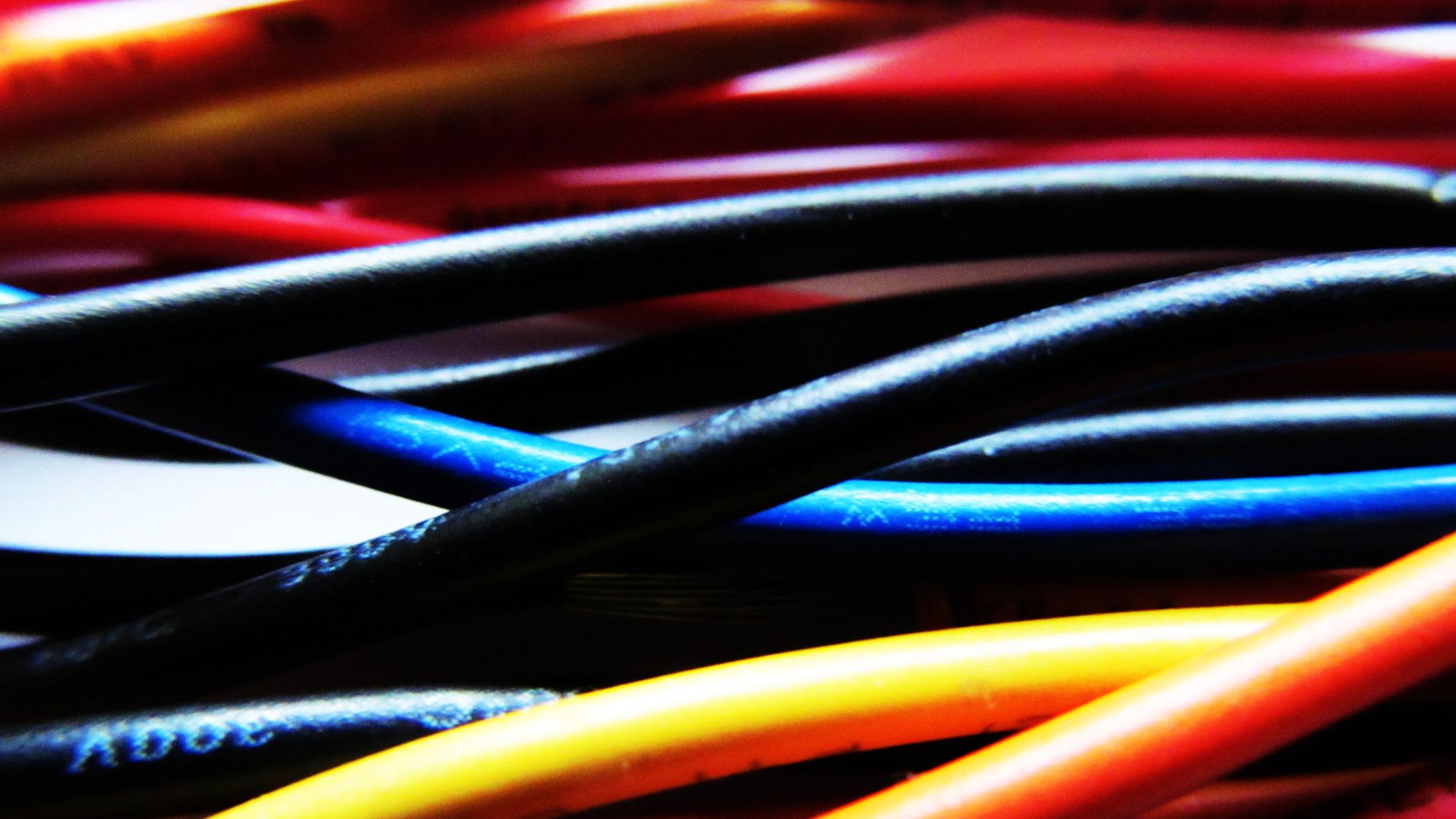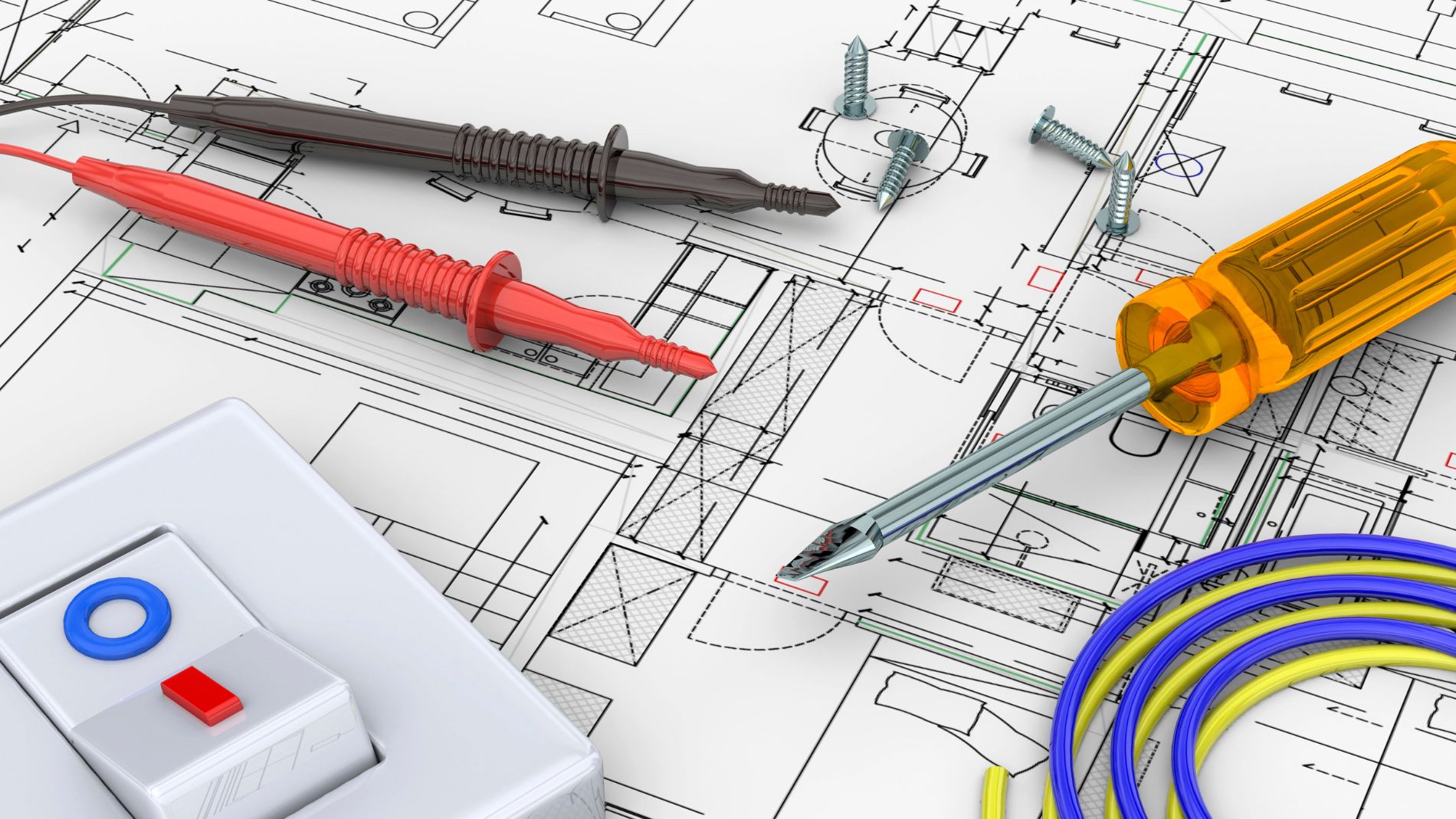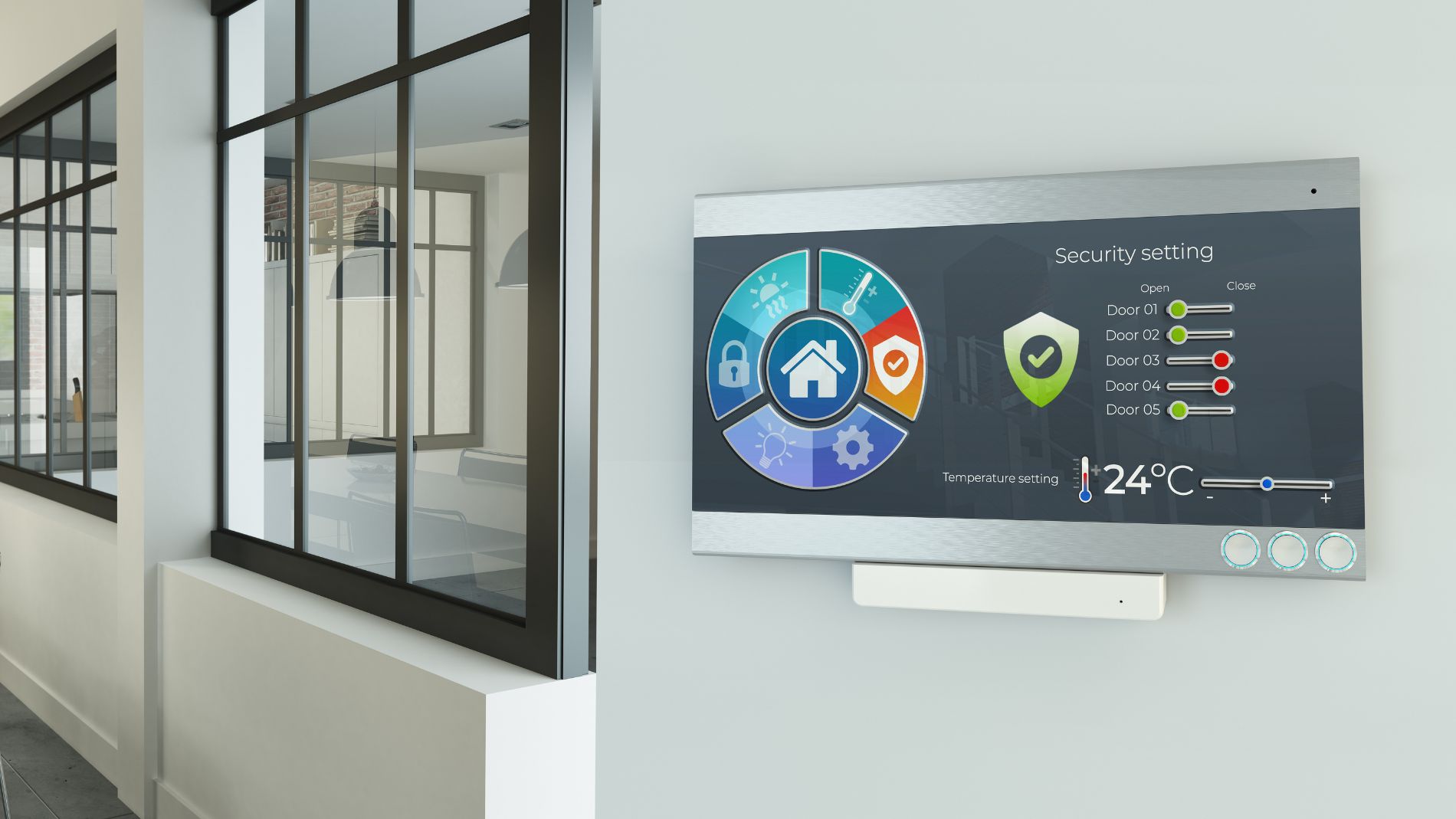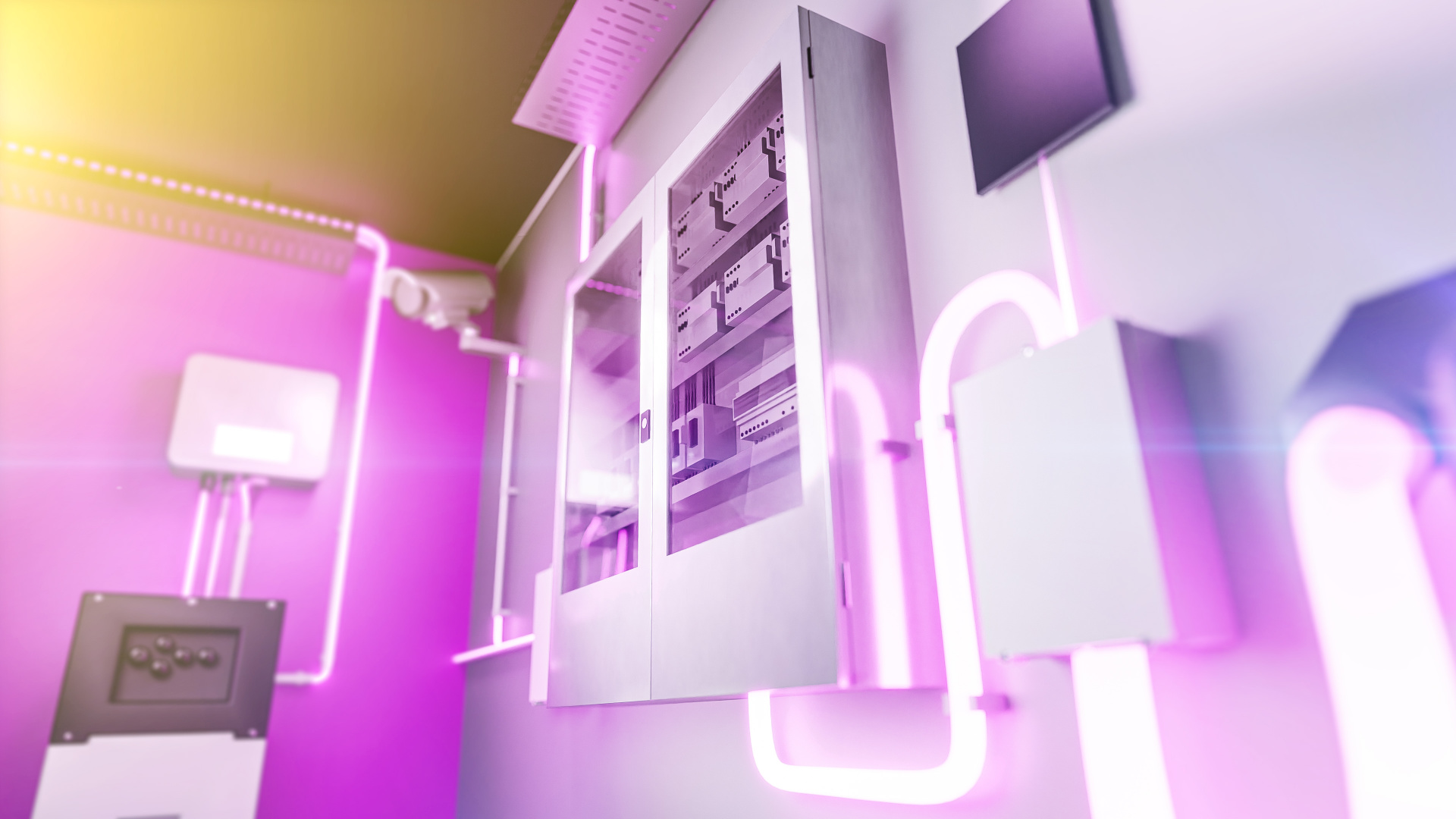As part of the energy transition, eco-friendly heating and demand-based energy management are becoming increasingly important in reducing power consumption. The integration of all powered components is essential for ensuring sustainable and future-proof system functionality.
Reading time: 5 minutes
Electrical Systems & Installations: Reliable and Optimized Energy Distribution for the Heart of Every Building

From modern cabling solutions for all electrical installations to building automation systems and their networking, innovative electrical systems & installations form the foundation of future powered systems. The key goals of today’s electrical systems & installations include:
- Minimizing energy losses through precise planning
- Meeting high safety standards by intelligently networking all security-relevant analysis and control systems
- Optimizing energy distribution with smart switching systems
- Reducing energy consumption through intelligent control that factors in user presence
- Enhancing the efficiency and cost-effectiveness of residential and commercial buildings
- Promoting digitalization, improving ease of operation and monitoring for better user comfort
Digitalization and the integration of smart control and monitoring solutions are at the forefront of these efforts. The seamless networking of systems and installations is crucial for smooth information exchange, with future developments focusing on interface technologies and open systems that can integrate seamlessly.
Energy Technology: Smart Optimization of Energy Consumption
The building sector accounts for approximately 38% of global greenhouse gas emissions. Currently, buildings equipped with smart technology save between 20% and 40% of energy. This potential will be further enhanced by comprehensive networking of building automation & control systems, helping to meet climate goals faster. Renewable energy sources and innovative energy storage solutions will play a significant role. A major part of the energy-saving potential lies in intelligent energy management: by analyzing key factors (such as weather and user behavior) in real-time, energy can be forecasted, provided, and used efficiently. These self-learning powered systems create sustainable, future-proof buildings.
Building Automation & Control Systems: Intelligent System and Equipment Management

With future-ready electrical systems & installations as a foundation, the connection and information exchange between all powered systems is established. The smart networking of systems like lighting solutions, HVAC, and security systems forms the basis of automated control.
The goals of building automation & control systems include:
- Optimizing energy use: Reducing energy consumption while using AI-powered, self-learning systems to ensure energy is provided efficiently. This enables sustainable operation and high user-friendliness. Future-proof buildings equipped with automation technology will reduce energy consumption and lower operational costs.
- Facilitating smart information exchange: Through system networking, data can be shared and analyzed to support intelligent system control, improving system efficiency and easing future maintenance and repairs.
- Enhancing user comfort: Digitalization simplifies system operation, increasing ease of use.
- Increasing security: Smart analytics and automated control of powered systems enhance safety. For example, early fire detection is possible, enabling the building’s smart technology to activate protective measures (smoke extraction, fire alarms, etc.).
Security Systems: Smart Protection at the Highest Level

Security systems, such as cameras, are an integral part of a building's electrical infrastructure and now serve beyond simple video surveillance, forming a foundation for sensors. Through intelligent networking, real-time building analysis is possible. AI analyzes data from connected systems and can detect early signs of fire or unauthorized access. The future of electrical building automation enables the implementation of the highest safety standards.
HVAC and Heat Generation: Climate-Neutral Heating and Cooling Technology
Most buildings still rely on burning fossil fuels, contributing to the sector's high CO2 emissions. Switching to electrical heating systems offers more efficient heat production and enables the use of renewable energy. For example, heat pumps efficiently convert ambient heat or geothermal energy. The intelligent networking of systems allows even more efficient and sustainable energy use in the future. Equipping more buildings with the appropriate electrical building technology will help reach climate goals faster. This also enhances the economic viability of buildings, which will become increasingly important in light of rising energy prices.
Summary: Sustainable Optimization of Power Consumption Through Building Automation & Control Systems and More – The Future of Powered Systems
Innovations in powered systems are essential and already underway to make buildings smarter, more sustainable, and future-proof. This applies to energy consumption, building operation, safety, user comfort, and climate control. Developments in interface technology for creating smart overall solutions will further simplify the networking of smart building technologies. As smart building technologies become easier to implement, a greater portion of the building sector can be upgraded to be future-ready and climate-friendly.
FAQ
What is the role of powered systems in creating functional and future-proof buildings?
Modern and efficient powered systems play a vital role by ensuring reliable energy supply and optimizing energy consumption through intelligent analytics and control systems. This lowers costs and contributes to the energy transition, making modern buildings more sustainable in the long term. Additionally, smart building technology, such as AI applications and sensors, is set to play an increasingly central role in safety features like access control and fire detection.
How do electrical systems & installations contribute to energy efficiency?
Modern electrical systems & installations help increase the energy efficiency of buildings. By using the right materials, power flow can be optimized, and resistance reduced, minimizing energy loss. Smart energy management applications play a crucial role in modern powered systems: from demand-based control to real-time energy consumption monitoring, AI optimizes energy use in various ways.
What is the importance of building automation & control systems?
Building automation & control systems are key to optimizing building efficiency and comfort. Automated control of the electrical infrastructure—such as heating, lighting solutions, and HVAC—boosts energy efficiency. By automatically adjusting to environmental factors like outside temperature and user needs, smart building control fully leverages the potential for reducing power consumption. This makes buildings more sustainable, economical, comfortable, and secure. Additionally, smart alarm and monitoring systems are increasingly being integrated into electrical building technology. With visual intelligence and advanced sensors, unauthorized access or fires can be detected faster.
